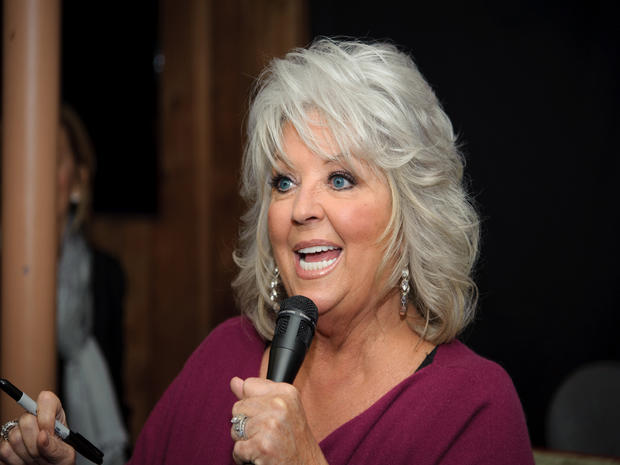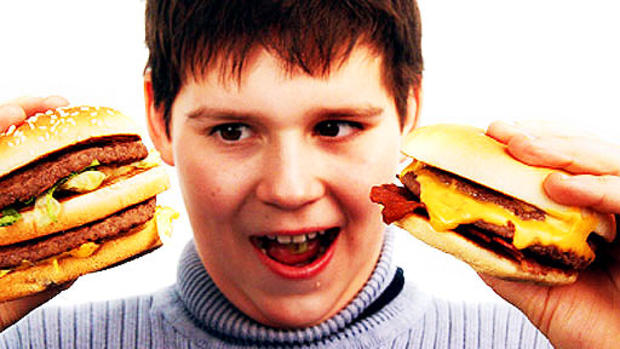Paula Deen's type 2 diabetes: Is her cooking to blame?
(CBS) Paula Deen announced today that she has type 2 diabetes. The 64-year-old Food Network star said she's teamed up with drug maker Novo Nordisk to promote a new program called "Diabetes in a New Light" which offers recipe tips and other coping advice for people with the disease.
Deen has had the disease for three years and treats it with the Novo Nordisk drug Victoza, according to USA Today. Victoza is a once daily injectable drug used with diet and exercise to control blood sugar levels in people with type 2 diabetes.
Rumors had circulated last week that Deen was going to partner with drug maker Novartis on its new type 2 diabetes drug, but Novartis had denied the claim to CBS News.
Deen said her diagnosis is not a death sentence and won't change how she cooks, but diabetes has caused her to make some lifestyle changes.
"I have made simple changes in my life, like cutting back on one of my favorite things, sweet tea - and for a Southern girl, that's a big deal," she said in a video on the Diabetes in a New Light website.
Her diagnosis has turned the spotlight toward the cooking she's famous for, which often contains rich, fatty foods loaded with butter and sugar.
"When your signature dish is a hamburger in between a doughnut, and you've been cheerfully selling this stuff knowing all along that you've got Type 2 Diabetes ... It's in bad taste if nothing else," celebrity chef Anthony Bourdain, told People.
PICTURES: Diabetes: 10 Deadliest Myths Paula Deen confirms she has Type 2 diabetesPICTURES: Yum - or yuck? 20 freakish fried foods
Deen however defended her cooking style on the Today Show this morning, telling Al Roker, "Like I told Oprah, 'Honey, I'm your cook, not your doctor," she said. "You have to be responsible."
When it comes to her famous Southern recipes, Deen said she wouldn't change her ways entirely, but preached moderation.
"People see me cooking all these wonderful, Southern, fattening recipes... it's for entertainment," Deen said. "People have to be responsible."
What do diabetes experts have to say?
"To my knowledge no particular food has been linked to an increase in the risk of diabetes," Dr. Linda Siminerio, director of the diabetes institute at the University of Pittsburgh Medical Center, told MSNBC. "It's being overweight and inactive."
Deen told USA Today that diabetes is like "Russian roulette," and can strike anyone. She said other factors contribute to diabetes, including genetics, race, age, and lifestyle.
Dr. Lauren Wissner Greene, clinical associate professor of medicine, at NYU School of Medicine, in New York, who was not involved in Deen's care, told HealthPop that Deen's announcement strikes her more as an "infomercial" for the Novo Nordisk drug, and takes issue with the idea that Deen can cook the same way if she makes simple lifestyle changes.
"She shouldn't lose her charm, but she needs to lose her weight," Greene told HealthPop. Greene said controlling intake of simple carbohydrates, cutting sugar and high fructose corn syrup, and eating more fruits and vegetables could help ward off diabetes, despite other risk factors that may predispose a person to the disease.
"It could strike anybody, but it's much less likely to strike someone active and skinny," Greene said. "We can probably be predisposed to diabetes, but we push it over the edge by eating too many carbohydrates and calories."
According to a recent study from the Annals of Internal Medicine, becoming overweight or obese, smoking, avoiding exercise, eating whatever you want, and drinking heavily are five ways to boost your risk for type 2 diabetes.
More than 25.8 million Americans have diabetes, 7 million of which probably don't know it yet. Type 2 is the most common form of the disease, which is caused when the body can't use insulin to break down sugar in the bloodstream for energy. Having type 2 diabetes could eventually lead to complications including heart attack, stroke, nerve damage, kidney damage, blindness or limb amputation.
The American Diabetes Association has more on type 2 diabetes.

